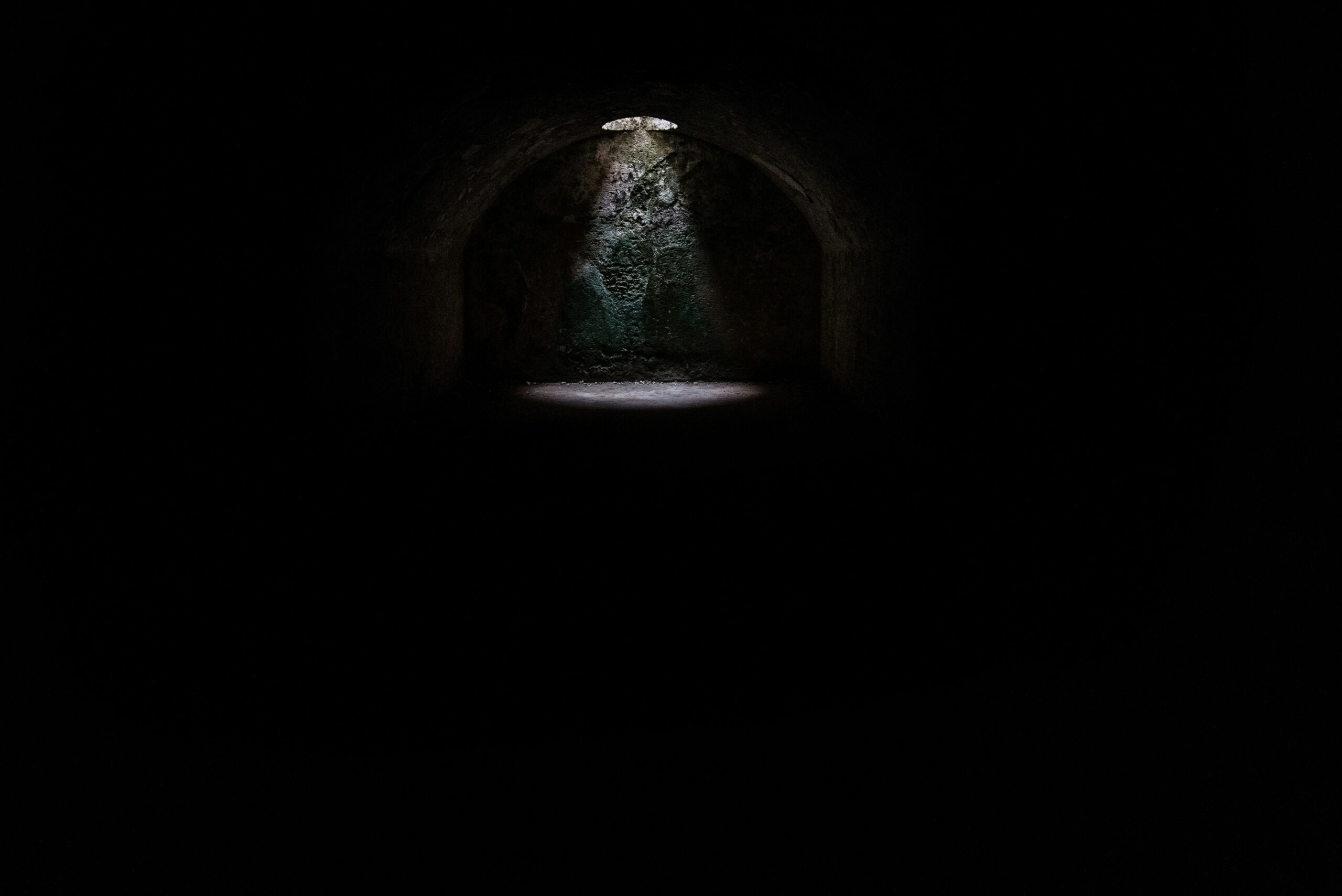Do you ever feel like nothing’s going right, like there’s a heavy cloud hanging over you, and everything you touch seems to slip away or fall short? Chuck Swindoll calls these “dark days and cloudy nights.” You’re experiencing the cave of loneliness. It’s something we all encounter at different times, some more intensely than others. Whether it’s an unremarkable, fleeting sadness or a profound season of sorrow, we experience emotional highs and lows.
For example, if you’re a Dallas Cowboys fan, you might feel a little let down after a tough loss. It’s disappointing, sure, but you recover quickly because, ultimately, it’s just a game. But what happens when the losses are bigger, life-altering even? When it’s not a game, but something that shakes your life’s foundation?
I can relate.
My wife and I have three beautiful children, but we’ve also lost three children. When my wife was pregnant, I carried a persistent fear, a looming dread that wouldn’t leave. This fear was unlike anything else. It clung to me, filling every quiet moment, making me feel isolated and helpless. It’s difficult to describe and even harder to talk about. You may feel like no one could understand or even relate.
That’s how depression and deep loneliness can feel. It’s as if you’re sinking into a pit where no one can reach you, no one can truly understand your sorrow. You feel invisible, even when surrounded by people. Loneliness in a crowd is its own unique pain, a dark cave of despair that no light seems to touch.
The Bible offers us a glimpse into such loneliness through the life of David. His journey is one of emotional highs and lows, of great victories and profound sorrows. David was a man of deep passion and emotion—a warrior and a poet, a man’s man with a sensitive soul. In one of his darkest moments, he poured his heart out in Psalm 142:1-7.
Let’s open to Psalm 142.
When opening to Psalm 142, you might notice a subtitle: “A prayer of David, when he was in the cave.” This is more than a poetic setting; it’s a snapshot of David’s life at a time when he felt abandoned, alone, and hunted. David had been a celebrated warrior, a hero who had slain Goliath as a young boy, and yet he found himself hiding in a dark, damp cave, fleeing for his life from King Saul. Saul, threatened by David’s popularity and God’s plan for David to become king, sought to kill him.
So, there he was, hiding in the Cave of Adullam, surrounded by a group of people who were themselves distressed, in debt, and discontented. Instead of uplifting friends or encouraging allies, David found himself leading a ragtag group of misfits. Imagine the isolation he must have felt. Surrounded, yet utterly alone, his accomplishments overshadowed by the king’s murderous jealousy.
David’s journey into the cave was not because of failure or wrongdoing but because of success. He was winning! He had risen through the ranks and even had people singing songs about his victories. But even in the face of his achievements, David was still overcome by loneliness.
David’s Despair
In verse 4 of Psalm 142, David’s despair is painfully clear: “Look to my right and see; no one is concerned for me.” The original Hebrew language reflects a sense of self-pity—a spiral of negative self-talk, a pattern of thought that deepened his despair. It was this pattern that led David to make a series of poor decisions, even going so far as to seek refuge among the Philistines, Israel’s enemies. This choice resulted in consequences that went beyond himself, impacting others in tragic ways.
In this place of despair, David essentially built a prison for himself. He allowed his mind to dwell on his loneliness, fueling his self-pity and distancing himself from God’s promises. Isolation magnified his fears and distorted his perspective. If only he had someone to help lift his gaze upward, to remind him of God’s faithfulness. He had once had such a friend—Jonathan, the son of Saul, who loved David as he loved himself. Jonathan was more than a friend; he was a spiritual anchor, someone who strengthened David in times of uncertainty. Jonathan’s presence had often redirected David’s gaze to God, but now, separated from his closest friend, David felt utterly alone.
The darkness of the cave grew in his mind as he cut off his connection to those who cared about him and isolated himself from his greatest source of strength—God. But in verse 6, we see a shift: “Listen to my cry, for I am in desperate need; rescue me from those who pursue me, for they are too strong for me.” In that dark place, David began to acknowledge his dependence on God. He realized he couldn’t save himself; only God could be his true rescue.
This is a crucial turning point.
Even when we’re deep in our darkest cave, feeling isolated and overwhelmed, God is present, ready to rescue. The Bible is full of stories of God’s rescue: He freed the Israelites from Egypt, saved Noah from the flood, protected Daniel in the lions’ den, and preserved Shadrach, Meshach, and Abednego in the fiery furnace. Jesus himself healed the blind, made the lame walk, cured those with leprosy, and preached hope to the poor. God is a God of rescue, and He desires to bring us out of darkness and into His light.
God’s rescue often comes through the people He places in our lives. Life is meant to be shared, to be lived in community. Just as Jonathan was there for David, we, too, need friends who will lift us up, challenge us, and point us to God. If we surround ourselves with people who keep our focus on His promises and not on our fears, we can face the caves of life with renewed hope.
As God’s children, we are destined for great things. When we place our trust in Him, we’re not only adopted into His family but also called into a royal priesthood. This isn’t just an individual journey; it’s a collective one. We are part of a community, a family of believers with a shared mission. So, I encourage you to consider: are you surrounding yourself with people who will point you to God, who will encourage and challenge you to walk in faith?
We all face seasons of darkness, but with God and godly people around us, we can move forward, leaving the cave behind and stepping into the light. May we seek friends like Jonathan, build each other up, and remind each other of God’s faithfulness. Even in our darkest moments, remember—God is our rescue, and He never abandons His own.
If you are in a place where you need help. or just a sounding board, just reach out. I would be happy to help.
This post was written by David Fuquay, who is an Executive Pastor and a Lead412 Coach. Want to learn more about working with David? Check out our Coaching & Consulting services.





